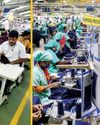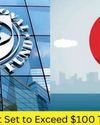Though a section of the press declared that the Reserve Bank of India (RBI) and the Government of India (GOI) were joint winners of the much awaited ‘mother of all board meetings’ that was organised on November 19, the undisputed fact remains that the RBI emerged unscathed. It did not lose anything. GOI was the lone loser. The predicted events did not materialise.

The anticipated results were: (i) GOI proved it was the boss in money matters; (ii) GOI can “gobble up” all the reserves RBI, which were built up by central bank for maintaining its credibility as a monetary authority; and (iii) successfully “watering down” the so called PCA (Prompt Corrective Action) framework put forward by RBI along the strict internationally accepted financial norms for maintaining stability of the financial sector and banking institutions. None of them eventuated. Above all, the earthshaking event anxiously awaited was the resignation of at least one person which was RBI Governor Urjit Patel. It was also forecast that Deputy Governor Acharya would also quit. But the two are still continuing in office. It was a tame ending of a battle.
PCA framework
To deal with the rising non-performing assets of the banks, RBI had introduced PCA measures for 11 public sector banks which are in the red. RBI prevented them from further lending. The measures relate to capital regulatory reforms, which included the minimum common equity Tier (CET) -1 ratio requirement at 5.5% as compared to 4.5% under Basel III framework. There are other requirements as well. They pertain to consumer credit loans and personal credit card loans. They are assigned a maximum of 125% risk weight as compared to 75%. The GOI wanted them to be relaxed, at least in regard to CET -1 ratio to 4.5% , so 6 lakh crore could be made available for overcoming the hurdles to credit flows. The GOI also wanted the capital to risk weighted assets ratio of 9% be reduced to 8% so more funds will be released for more lending.
Denne historien er fra December 1 - 15, 2018-utgaven av BUSINESS ECONOMICS.
Start din 7-dagers gratis prøveperiode på Magzter GOLD for å få tilgang til tusenvis av utvalgte premiumhistorier og 9000+ magasiner og aviser.
Allerede abonnent ? Logg på
Denne historien er fra December 1 - 15, 2018-utgaven av BUSINESS ECONOMICS.
Start din 7-dagers gratis prøveperiode på Magzter GOLD for å få tilgang til tusenvis av utvalgte premiumhistorier og 9000+ magasiner og aviser.
Allerede abonnent? Logg på

Bank of Baroda, Kolkata Zone organised Mega Kisan Melas in West Bengal
Bank of Baroda (BOB) organised Mega Kisan Mela at Konkalitala in Birbhum District of West Bengal on November 18, 2024 as a part of the 7th Edition of the Baroda Kisan Pakhwada (BKP).

Time-Bound Disposal of Cases to Expedite the Delivery of Justice and affordabe by all in India
The delay in the disposal of cases in Indian courts remains a significant hurdle to the nation's progress.

Dev Deepawali: A grand celebration of light, spirituality, and culture in Varanasi
The holy city of Varanasi, often regarded as India's spiritual and cultural heart, came alive with the splendor of Dev Deepawali on the sacred day of Kartik Purnima.

The life of Job 'Ye judge not the judgment of God' - Jesus Christ
The Holy Bible reveals through the life of Job how the Lord tests the righteous and that faith helps one to overcome life's adversities.

India has the highest potential for the garment industry, only a conducive government policy is required.
India's textile industry is poised for remarkable growth, with expectations to double its contribution to the GDP within the next six to seven years.

Global Public Debt may be worse than it appears, warns IMF
Global Public Debt Set to Exceed $100 Trillion, Warns IMF

The economic consequences of Trump's Presidency: A global perspective
One of the key economic factors contributing to the Democrats' loss in the US elections was the significant rise in inflation, which was initially triggered by the COVID-19 pandemic and exacerbated by the Russia-Ukraine war.

Challenges and Successes in West Bengal's Education Sector: A Comprehensive Overview
The education system in West Bengal, particularly in districts, villages, slums, and government institutions, reflects a blend of progress and ongoing challenges.

What India can expect from Trump's return
I may be too early to predict how Donald Trump's second term as president will impact the global oil market.

Stocks Surge Following Donald Trump's Election as 47th President of the USA
Stocks soared following the election of Donald Trump as the 47th President of the United States. Investors anticipated that the Information Technology (IT) sector would benefit from lower corporate taxes under the Republican regime, with IT stocks leading the rally.